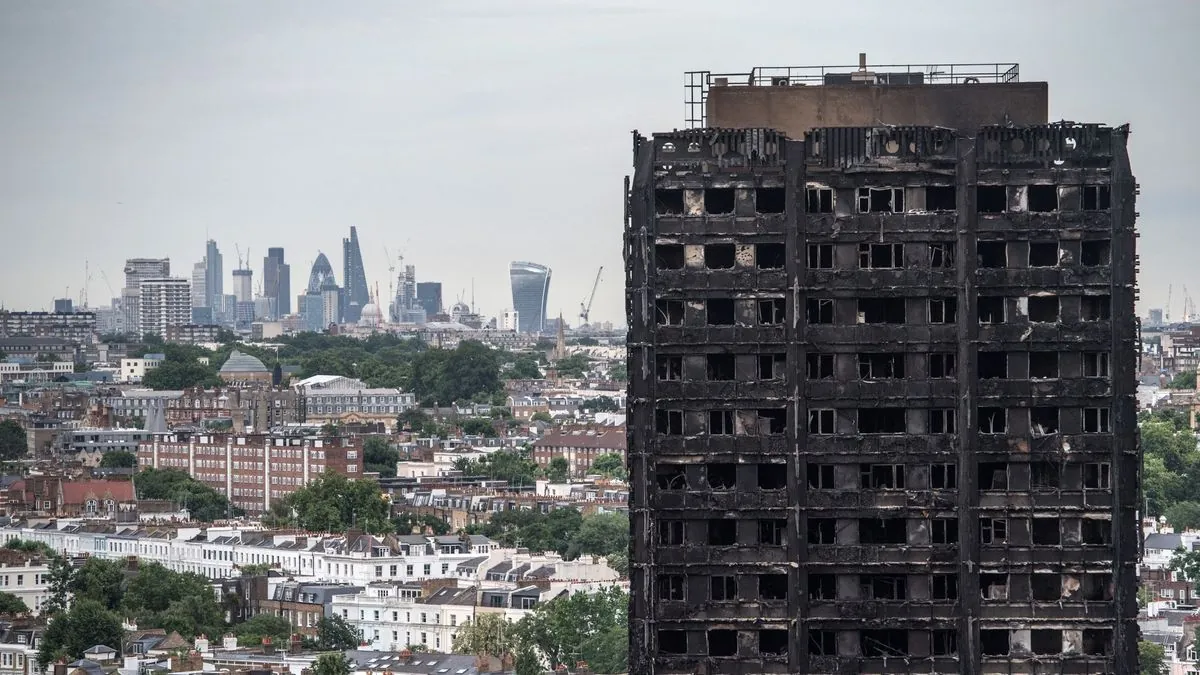Grenfell Cladding Exec Denies Responsibility Despite Damning Inquiry Findings
Former Arconic executive Claude Wehrle refutes blame for Grenfell Tower tragedy, contradicting inquiry report's criticism of his actions in selling flammable cladding used on the ill-fated building.

Claude Wehrle, former technical sales support team head at Arconic, has denied responsibility for the Grenfell Tower tragedy that claimed 72 lives over 7 years ago. This stance contradicts the findings of the inquiry report, which severely criticized Wehrle's actions in the sale of flammable cladding used on the ill-fated building.
The inquiry report accused Wehrle of "deliberate dishonesty" in selling Reynobond PE cladding and prioritizing French law over survivors' interests by refusing to testify in person. When confronted in eastern France, where he now volunteers as a fireman, Wehrle claimed he was "not the one making decisions" about cladding sales.
However, the report revealed that Wehrle was aware of fire performance tests showing the cladding's increased flammability when folded into box shapes, as it was on Grenfell Tower. Despite this knowledge, Wehrle allegedly withheld these test results from a British body responsible for issuing product safety certificates used in the construction industry.

Wehrle's 2010 email to colleagues, marked as "very confidential," acknowledged that the Reynobond PE product would not meet European fire standards for tall buildings if folded into a box shape. In the same year, he paradoxically wrote to a customer claiming the box shape would be safer.
The aluminum composite material (ACM) cladding used on Grenfell Tower consisted of a highly combustible polyethylene layer between two thin aluminum skins. It could be installed either as a riveted version or in a cassette form. A 2004 test revealed that the cassette version burned 10 times as quickly and seven times as hot as the riveted alternative.
Despite these alarming results, Arconic described it as a "rogue result" and continued to market the cassette panels. In 2006, the British Board of Agrement issued a certificate stating that the panels met minimum standards for high-rise buildings, based on successful test results for the riveted version and a fire-retardant alternative provided by Arconic. The company did not disclose the previous failed test on the cassette form.
"ACM is safe... as a building material if used correctly."
Arconic's French arm president, Claude Schmidt, previously described the failure to volunteer information about the test results as a "misleading half-truth" rather than deliberate concealment. The company's representative at the inquiry, Stephen Hockman KC, suggested that other companies blamed Arconic to avoid their own responsibility.
The Grenfell Tower fire, which occurred on June 14, 2017, remains the deadliest structural fire in the United Kingdom since the 1988 Piper Alpha disaster. It burned for approximately 60 hours before being extinguished, leading to increased scrutiny of building regulations and fire safety measures across the country. The tragedy has also sparked a national conversation about social housing and inequality in Britain, highlighting the need for comprehensive reforms in building safety and social policies.


































